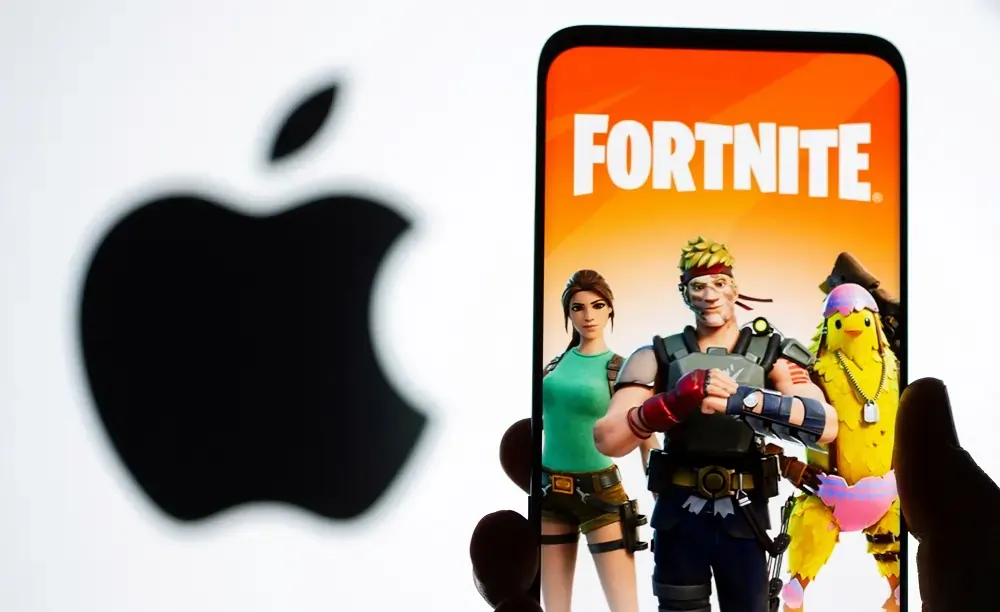
By Supantha Mukherjee
STOCKHOLM (Reuters) – Multiplayer shooter game Fortnite is available again on iPhones in the European Union and worldwide on Google’s Android devices after a gap of four years, following legal measures by the EU, developer Epic Games said on Friday.
Fortnite, created by Epic, a U.S.-based studio, and backed by China’s Tencent, the world’s largest game studio, launched in 2017 and its last-player-standing, “battle royale” format became an instant hit, drawing in millions of dedicated players.
But in August 2020, Apple and Alphabet’s Google removed Fortnite from their app stores for violating their guidelines by launching a payment feature, prompting several lawsuits challenging their rules of charging up to 30% commissions on payments.
At the time of the ban, Epic had 116 million users just on Apple’s platform.
The EU’s Digital Markets Act (DMA) law is allowing Epic to launch its game store in the bloc, though Apple is still blocking users outside Europe from accessing Fortnite and its games store, the company said.
“We are really grateful to the European Commission for not only passing the DMA and enabling store competition, but also going in and robustly holding Apple and Google’s feet to the fire to ensure that they can’t just obstruct competition,” Epic CEO Tim Sweeney told reporters.
“They were going to great efforts to slow us down, and tried to stop us several times, and the European Commission always stepped up and ensured that competitors were able to enter the market,” he said.
The store is launching with Fortnite, Rocket League Sideswipe and the all-new Fall Guys for mobile, and Epic is working with other developers to launch their games and apps through its store.
Epic, which has 75 million monthly active users in its PC store, expects to add 100 million new mobile users by the end of the year.
The games would also be available through independent mobile stores such as AltStore.
However, the installation process is lengthy with a 15-step installation process on iOS devices, confusing device settings and scare screens, Epic said.
Apple said that to enable the new capabilities for developers in the EU, it worked to make them as easy as possible for users while also trying to protect their privacy and security.
“We probably lost over a billion dollars of revenue by losing access to the iOS customer base worldwide for four years, but what’s the cost of freedom?,” Sweeney said.
(Reporting by Supantha Mukherjee; Editing by David Holmes)

